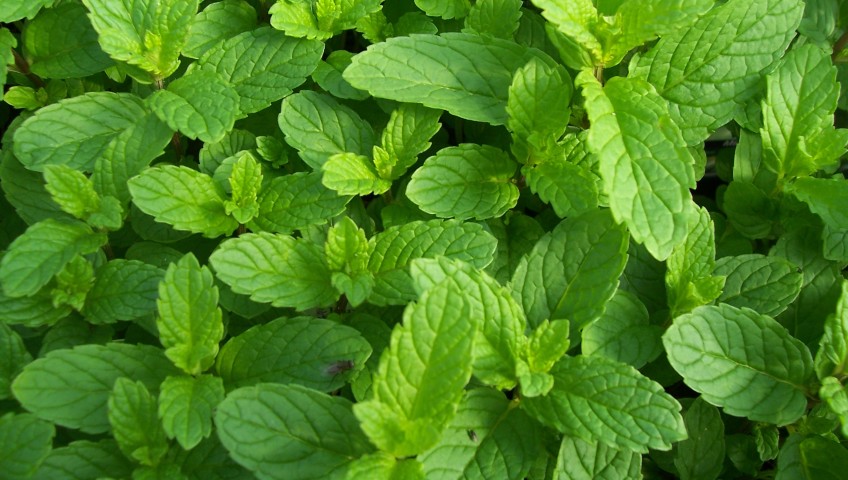
Pest-Repelling Plants In San Antonio
Whether you’re battling mosquitoes, fleas, ants or rodents, pests can quickly disrupt your outdoor space — and even creep indoors. Luckily, there are natural ways to keep bugs at bay that double as attractive additions to your yard or garden.
At Apple Pest Control, we believe in smart, sustainable pest control — inside and out. That includes enhancing your landscape with pest-repelling plants that don’t just look great, but also help deter common pests. Even better? Many of them are non-toxic for pets, so you can keep your furry friends safe while building your natural defense.
- Peppermint
- Rosemary
- Basil
- Chamomile
- Lemongrass
- Catnip
- Marigolds
Why Use Plants For Pest Control?
Pest-deterring plants emit strong scents or compounds that naturally repel insects and even small rodents. These plants work best when used as part of an integrated pest management strategy, which includes professional inspection, exclusion and treatment.
Many popular repellents like eucalyptus and citronella can be toxic to pets. But don’t worry — plenty of safe, effective options exist. Here’s a list of pest-repelling plants that do the job without putting your pets at risk.
Pest-Deterring Plants That Pack A Punch
1. Peppermint (Mentha × piperita)
Repels: Fleas, ticks, ants, spiders and mice
Peppermint is a powerhouse in the pest-control world. Its high menthol content is naturally irritating to insects and rodents, making it a top choice for patios, garden borders and even kitchen counters.
- Grow it in containers to control spreading
- Add crushed leaves to problem areas like pantries and doorways
- Try peppermint essential oil (diluted) for added effect
Bonus: Mentha suaveolens (apple mint) has similar repelling properties with a softer scent — great for ornamental use.
2. Rosemary
Repels: Mosquitoes, fleas, ticks, cabbage moths
This Texas-hardy herb thrives in hot, dry climates and releases a pungent aroma that pests avoid. Rosemary is especially useful when planted near entryways, garden beds or outdoor seating areas.
- Plant in raised beds or large pots
- Trim regularly to keep oils active
- Add sprigs to campfires or grills to repel flying insects
3. Basil
Repels: Houseflies, mosquitoes
Basil doesn’t just flavor your pasta — it’s also a natural fly and mosquito deterrent. Varieties like lemon basil and cinnamon basil are especially fragrant.
- Best grown near doors, windows or outdoor dining areas
- Thrives in full sun with regular watering
- Use fresh leaves to make DIY insect sprays
4. Chamomile
Repels: Fleas, flying insects
Chamomile might be best known for bedtime tea, but its soft, apple-like scent helps ward off smaller pests. It’s also believed to support overall garden health.
- Plant around the base of fruit trees or vegetable beds
- Attracts pollinators while keeping fleas away
- Can be dried and used in sachets or sprays
5. Lemongrass
Repels: Mosquitoes, whiteflies
Lemongrass contains citronella oil, a well-known natural insect repellent. While citronella candles help, growing the plant offers longer-term benefits.
- Requires lots of sun and space
- Adds a tropical look to landscapes
- Safe alternative to synthetic mosquito products
6. Catnip (Nepeta cataria)
Repels: Mosquitoes, cockroaches, ants
Catnip is famous for making cats go wild — but it’s a nightmare for bugs. Some studies suggest it’s even more effective than DEET at repelling mosquitoes.
- Plant in containers or controlled beds (it spreads easily)
- Use leaves in homemade repellents
- Bonus: Great enrichment for your feline friends!
7. Marigolds
Repels: Aphids, whiteflies, nematodes, mosquitoes
Marigolds emit a sharp scent that deters many garden pests, and they’re particularly useful for protecting vegetable gardens.
- Line beds and borders for best effect
- Deadhead blooms to encourage growth
- Adds bright, low-maintenance color to any landscape
Smart Gardening Tips For Pest Control
- Companion planting — Mix repellent plants with vegetables or ornamentals for enhanced protection.
- Strategic placement — Plant near windows, entryways, patios and pet rest areas.
- Maintenance matters — Trim, water and care for your plants to keep them potent and pest-repelling.
Go Green, The Apple Pest Control Way
While plants can help deter pests, they work best when paired with professional pest control services. Apple Pest Control has served Helotes, San Antonio and the surrounding areas since 1984, offering reliable, eco-friendly pest solutions that keep families safe — without the need for contracts.
Our team offers everything from organic pest control to rodent control services and tree and lawn care. Let our family take care of yours!
Ready To Build A Pest-Repelling Garden?
A garden that repels pests doesn’t have to sacrifice beauty — or safety. With these plants and support from Apple Pest Control, your outdoor space can become a sanctuary for your family (and not for bugs).
Contact us today to schedule a consultation or learn more about our organic pest control services in Helotes and San Antonio.




